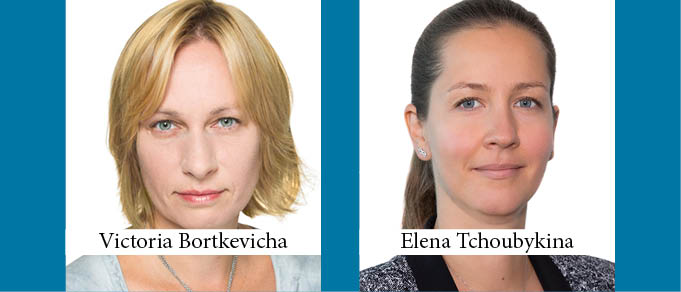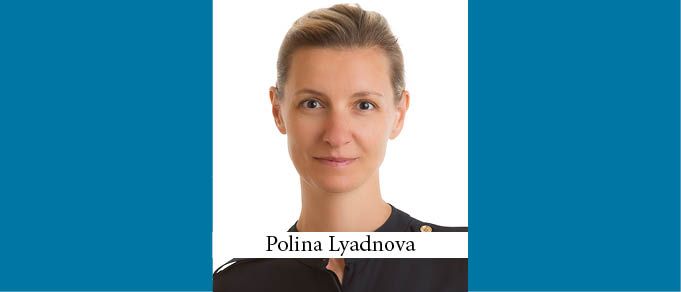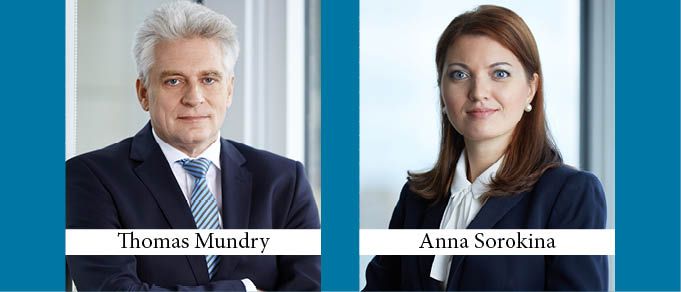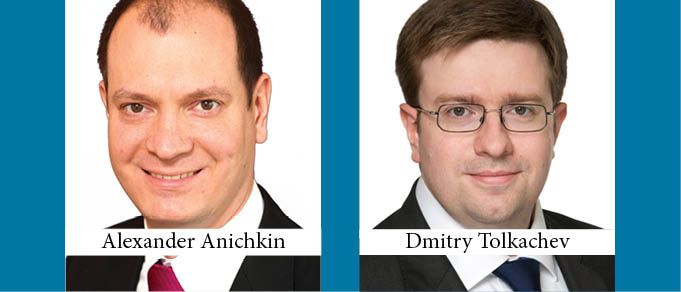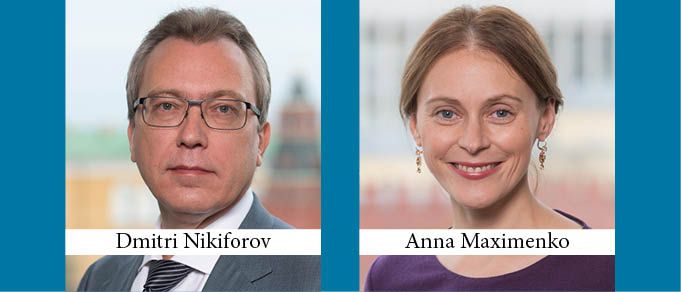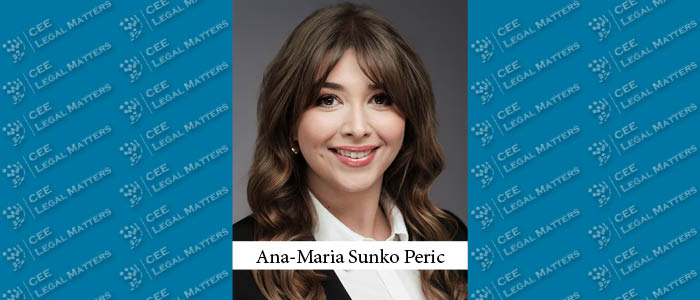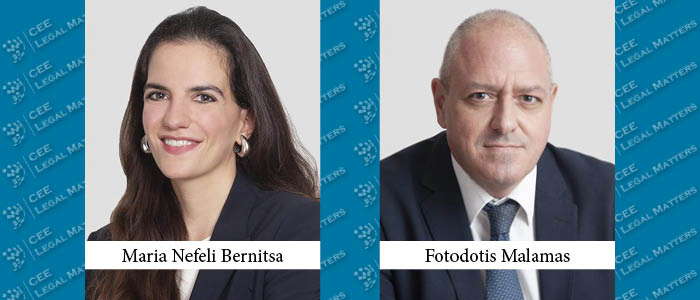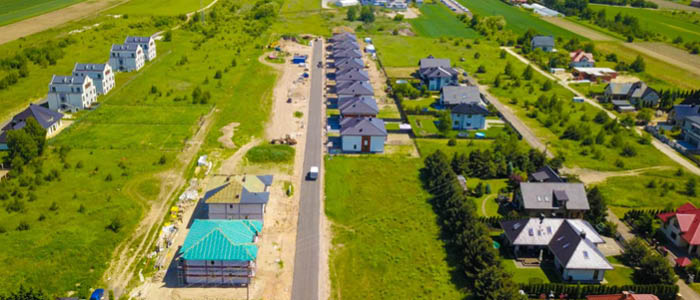On July 30, 2018, Russian President Vladimir Putin signed into law two bills approved by the Russian Parliament aimed at improving commercial, civil, administrative and criminal proceedings in Russia (the “Bills”).
Russian Competition Law and Sanctions
Foreign sanctions are forcing international companies to carefully evaluate their contractual relationships with Russian counterparties. In this respect Russian competition law provides obstacles that may be difficult to over-come.
Inside Insight: Interview with Maxim Nikitin, Chief Legal Officer of Atol Group in Russia
Maxim Nikitin is the Chief Legal Officer of Atol Group in Russia. He started his career in law in 1998 at Debevoise & Plimpton. In 2001 he moved in-house before returning to private practice in 2011. In 2013 he moved back in-house as Chief Legal Officer with Virgin Connect, before moving to Atol in March of this year.
Marketing Law Firm Marketing: The Biggest Difference
The news that many of the legal markets in CEE impose stricter rules on law firm advertising and marketing than many of their Western counterparts comes as no surprise. Still, to explore this concept just a bit, for this issue, we asked law firm marketing and BD experts around CEE: “What, in your opinion, is the biggest difference between law firm marketing in your market and law firm marketing in London or New York?
Expat on the Market: Interview with Thomas Mundry of Noerr
German lawyer Thomas Mundry has been living and working in Russia since 1994. He advises both Western and Russian clients on investment, financing, and other projects in the Russian Federation. His sphere of activity covers a wide range of industries, including automotive manufacturing and supply industry, oil and gas, chemicals, engineering, retail, food and consumer goods, the fashion industry, and IT.
Inside Out: 2018 Uralkali Financing
The Deal: In September 2017, CEE Legal Matters reported that the Moscow offices of Clifford Chance and CMS had advised on USD 850 million pre-export financing provided by 11 international banks for Uralkali, one of the world’s largest potash producers. On July 27, 2018, CEE Legal Matters reported that the two firms had advised on another Uralkali financing, this time involving a USD 825 million facility provided by 14 Russian and international banks.We reached out to both firms for more information about this most recent deal.
Syndicated Facilities Under Russian Law – Developments and New Challenges
Below we highlight key developments and challenges related to the new Russian law on syndicated facilities.
Digitalization: On the Road to Regulation
During the last decade, customary business processes have been disrupted by new financial technologies such as blockchain, cryptocurrencies, blockchain tokens, and smart contracts. The appropriate regulation is on its way in Russia, as Russian regulators have recently shifted their focus from imposing a ban on cryptocurrencies to looking for ways to regulate the new relationships. As a result of prolonged discussion about the legal nature of tokens and cryptocurrencies, the authorities have come up with two bills designed to set a cornerstone for Russian regulation of the digital economy.
Russian Anti-Sanctions Measures
In June of this year Russia adopted a law giving the Russian President broad authorization to retaliate for foreign sanctions. The Russian parliament is also currently considering a bill that would criminalize compliance with U.S. and other foreign sanctions against Russian parties. While the practical impact of the additional authorization for the President is unclear, criminalization of compliance with foreign sanctions may have serious negative repercussions for U.S. and European businesses operating in Russia or having other Russian exposure.
A Blessing and a Curse: Sanctions a Mixed Bag for Foreign and Domestic Law Firms in Russia
Why are domestic firms in Russia doing so well, when their international counterparts continue to struggle?
Guest Editorial: Russia – As Unpredictable As Ever
Throughout my career, the only predictable feature of the Russian market has been its unpredictability. Given what has happened in Russia in the first months of 2018, it would appear that foretelling the future is not about to get any easier.
Inside Insight: Vera Kolesnik, Legal Director at Nestle
Vera Kolesnik is Nestle’s Legal Director for Russia and Eurasia. Before joining Nestle in 2007 she worked for four years at Ernst & Young and for five years at the Institute of State and Law at the Russian Academy of Science.
Establishment and Operation of Agro-Industrial Parks in Russia
New Type of Industrial Parks
Starting from the mid-2000s, industrial parks (IPs) have developed rapidly in Russia. By 2018, there were 166 IPs located across 51 constituent parts of Russia.
PPPs vs. Concessions in Russia
Public private partnerships and concessions are effective tools to allow governments to partner with the private sector to develop and finance key infrastructure projects. These forms of collaboration are particularly relevant in Russia, where infrastructure investment needs are estimated by the World Bank to be about USD 1 trillion.
A Night of Celebration at CEE Deal of the Year Awards Banquet in Prague
The winners of the 2017 CEE Deal of the Year Awards were announced at the first ever CEE Legal Matters Deal of the Year Awards Banquet last night in Prague. The biggest smiles in the joyous and music-filled celebration of CEE lawyering, perhaps, were on the faces of Partners from Avellum and Sayenko Kharenko, which, along with White & Case and Latham & Watkins, won the award both for Ukrainian Deal of the Year and CEE Deal of the Year for their work on the 2017 Ukraine Eurobond Issue (a story initially reported by CEE Legal Matters on October 2, 2017).
Russian GAAR: Carrot, Stick, or Both?
The Russian tax landscape is going through a period of transformation. The average value of assessments as a result of tax audits is increasing and taxpayers are losing more disputes. Various changes to the tax laws have acted as a contributing factor. The introduction of the anti-abuse concept of “beneficial ownership” in domestic legislation, the development of tax residency and CFC rules, and the enactment of new thin capitalization rules are just a few of the recent changes that are already having an impact on taxpayers in Russia.
Guest Editorial: Who Are You, Mr. Mentor?
I vividly remember my first deal ever. It was a debut Eurobond from a Russian corporate after the financial crisis in 1998. I was interning in the “summer boot camp” of a major ILF in Moscow right after the fourth year of my law studies. A first grip at a due diligence exercise, trying to understand what it was like to be a lawyer in private practice – not least to see if I actually wanted to be one.
Anti-Corruption Developments in Russia in the First Half of 2017
In 2016, Russian law enforcement authorities had some success in investigating and combatting bribery. For the first time in several years, the majority of cases involved bribe-taking, rather than bribe-giving, and involved significant bribe amounts. The number of cases against bribe-takers increased by 19.7% from 2015, while the number of cases against bribe-givers increased by only 4.4%. This trend continued in the first half of 2017; the Russian Ministry of Internal Affairs and law enforcement authorities registered 3,362 cases of bribery, of which 2015 cases concerned bribe-taking and 1,347 cases concerned bribe-giving.






